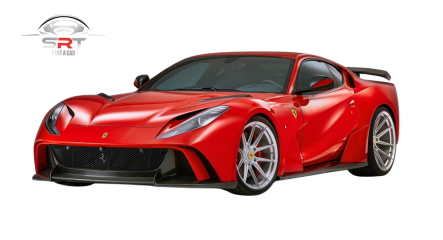
The world of cars has come a long way since the invention of the first automobile. From the Model T to electric vehicles (EVs) and self-driving cars, the automotive industry has witnessed significant advancements over the years. In this post, we'll explore the current state of cars, their impact on society, and the exciting future that lies ahead.
-
Electric Revolution: One of the most transformative developments in the automotive industry is the rise of electric vehicles. EVs have gained immense popularity due to their environmental benefits, lower operating costs, and impressive performance. Major automakers have been investing heavily in EV technology, with many countries pledging to ban the sale of internal combustion engine (ICE) vehicles in the near future. This transition marks a pivotal moment in the history of cars, as we move towards cleaner and more sustainable transportation.
-
Autonomous Driving: Self-driving cars are no longer a futuristic concept but a reality. Companies like Tesla, Waymo, and Uber have made significant strides in autonomous vehicle technology. While fully autonomous cars are not yet commonplace on the roads, they are being tested in various cities worldwide. The promise of autonomous driving includes enhanced safety, reduced traffic congestion, and increased accessibility for people with disabilities.
-
Connectivity and Smart Features: Modern cars are more connected than ever before. They come equipped with advanced infotainment systems, GPS navigation, and smartphone integration. These features not only enhance the driving experience but also contribute to safer and more efficient journeys. Additionally, cars are becoming smarter, with the ability to communicate with other vehicles and infrastructure, creating a networked ecosystem for transportation.
-
Sustainability and Green Initiatives: As the world becomes increasingly aware of climate change and environmental concerns, the automotive industry is focusing on sustainability. Automakers are developing eco-friendly materials, exploring alternative fuels, and investing in carbon-neutral manufacturing processes. Sustainability is not just about the vehicles themselves but also extends to the entire supply chain and the recycling of old cars to reduce their environmental impact.
-
The Future of Mobility: Beyond personal cars, the concept of mobility is evolving. Ride-sharing services, micro-mobility options like electric scooters, and urban planning initiatives are changing the way we think about transportation. The goal is to create more efficient, accessible, and sustainable mobility solutions that reduce congestion and improve the quality of life in cities.
-
Challenges and Considerations: Despite the promising developments, there are challenges to address. These include concerns about data privacy in connected cars, the need for comprehensive regulations for autonomous vehicles, and the accessibility of new technologies to people of all income levels. Additionally, there are infrastructure challenges related to charging networks for electric vehicles.
Conclusion: The world of cars is in the midst of a remarkable transformation. From electric vehicles and autonomous driving to increased connectivity and sustainability, the automotive industry is driving innovation at an unprecedented pace. As we look to the future, cars will continue to play a crucial role in shaping our society, with a focus on cleaner, safer, and more efficient transportation options. Buckle up, as the journey ahead promises to be an exciting and transformative ride.